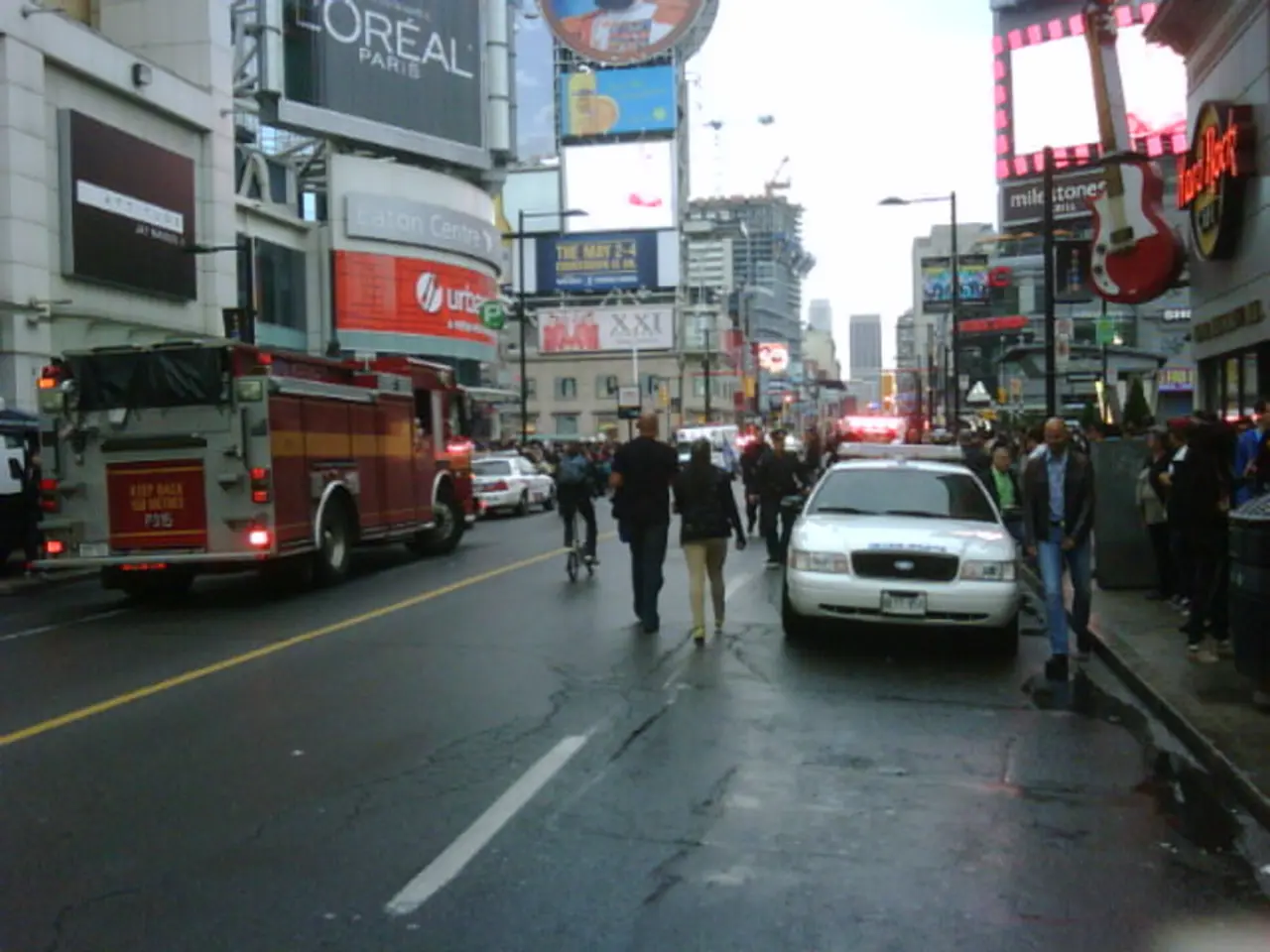Summer sales on Britain's high streets miss out during July
The UK's high streets experienced a decline in footfall once again in July, as many retailers had hoped for a summer boost in shoppers but were left disappointed. According to the British Retail Consortium (BRC), overall footfall in the UK, including high streets, retail parks, and shopping centres, decreased by 0.4% in July.
This trend is not a new development, as the shift to online shopping has contributed significantly to a decline in footfall on UK high streets in recent years. The decline has been exacerbated by broader economic challenges such as falling consumer confidence and cost-of-living pressures.
Helen Dickinson, chief executive of the BRC, stated that July did not bring the expected summer boost in shoppers, and footfall dipped for the second consecutive year. Specifically, high street footfall decreased by 1.7%, while footfall in London decreased by 0.5%.
The decline in footfall has had a significant impact on the retail industry, with around 10% of retail jobs lost in the last decade, and another one in ten set to be lost by 2027. The number of retail job vacancies has also fallen by 39% year on year, according to Adzuna's latest jobs report.
Shops have been particularly incensed by high business rates, which are charged on licensed premises. The government's plan to reduce business rates for most Retail, Hospitality, and Leisure premises is a step in the right direction, according to Dickinson. However, the upcoming reforms must ensure no store pays more, or risk seeing many larger stores close their doors or raise their prices.
Only a substantial cut in business rates will truly benefit communities nationwide and help bring thousands of empty shops back into use, according to Dickinson. One example of a local uplift in traffic and spend was seen in Manchester during the Oasis tour, demonstrating the potential positive impact that events can have on high street footfall.
Consumer sentiment remains cautious, one year into a new Labour government, according to Andy Sumpter, Retail Consultant EMEA for Sensormatic. The Deloitte Consumer Tracker reported that UK consumer confidence fell to -10.4% in Q2 2025, the lowest since early 2024, driven by concerns over job security and rising household costs. Lower confidence typically discourages discretionary spending and in-person retail visits.
Net worth declines for traditional department stores such as Fenwick Limited, which saw a drop from approximately £534 million in 2019 to £421 million in 2024, reflect challenges faced by physical retailers partly due to online competition and changing consumer behavior. There has also been variability in commercial real estate investment in retail spaces, with some declines in investment in retail property reflecting reduced demand linked to lower footfall.
In conclusion, the growth of online shopping combined with economic uncertainties has led to decreased footfall on UK high streets, pressuring physical retailers and influencing retail property markets. The government's efforts to reduce business rates are a step in the right direction, but more substantial action is needed to help revive the UK's high streets and bring thousands of empty shops back into use.
The decline in footfall on UK high streets has resulted in job losses within the retail industry, with around ten percent of retail jobs lost in the past decade and another one in ten set to be lost by 2027. The high business rates charged on licensed premises have particularly worried shops, with the government's plan to reduce business rates for retail, hospitality, and leisure premises seen as a step in the right direction by Helen Dickinson, chief executive of the British Retail Consortium.




